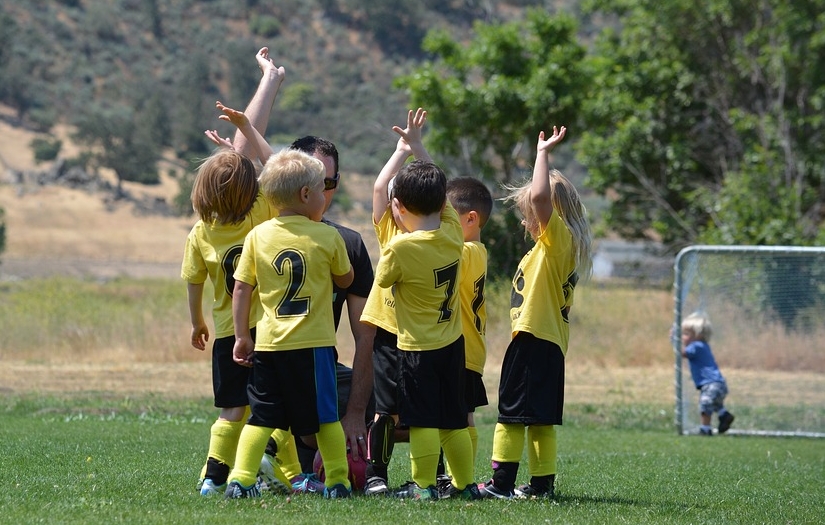....
Der Frontallappen gilt als der Regisseur in unserem Gehirn. Wow, wenn das stimmt, dann ist es wichtig zu wissen, wie ich den stärken oder auch schwächen kann !!
..
The frontal lobe is the director in our brain. Wow, if that's true, then it's important to know how I can strengthen or weaken it!!
....
....
Frontallappen - der grösste Teil unseres Gehirns
Beispiel - Phineas Gage
Der Frontallappen wurde ‘entdeckt’ anlässlich des berühmten Unfalls von Phineas Gage (siehe BLOG). Phineas war danach nicht mehr dieselbe Person, obwohl er körperlich, intellektuell sowie motorisch völlig intakt war. Vor dem Unfall, der seinen Frontallappen durchlöcherte, war er ein vorbildlicher, verantwortungsvoller, ruhiger Mann. Danach war er ein launenhafter, respektloser Kerl, der viel fluchte, impulsiv und unzuverlässig war. Er litt immer wieder an epileptischen Anfällen und Fieberschüben, bis er dann im Jahr 1860 im frühen Alter von 36 Jahren verstarb (siehe BLOG).
..
Frontal lobe - the largest part of our brain
Example - Phineas Gage
The frontal lobe was 'discovered' on the occasion of Phineas Gage's famous accident (see BLOG). Phineas was no longer the same person after that, although he was completely physically, intellectually and motorically intact. Before the accident that punctured his frontal lobe, he was an exemplary, responsible, quiet man. After that he was a moody, disrespectful guy who swore a lot, was impulsive and unreliable. He repeatedly suffered from epileptic seizures and fever attacks until he died in 1860 at the early age of 36 (see BLOG).
....
....
Forschung
In den letzten 175 Jahren hat die Forschung grosse methologische Fortschritte gemacht, weshalb wir in der heutigen Zeit insbesondere über den Frontallappen über eine grosse Menge an Informationen verfügen.
Der Frontallappen, oder auch Stirnlappen genannt, ist einer von vier Lappen des Grosshirns. Der vorderste Bereich, der sogenannte präfrontale Cortex, gilt als der Sitz unserer Persönlichkeit. Also, was wir sind, dafür steht unser Frontallappen gerade!!
Hier werden vor allem die Mechanismen gesteuert, die unsere Gedanken und Gefühle kontrollieren und koordinieren. Die Neuropsychologie benützt dafür den Sammelbegriff <Exekutive Funktionen>
..
Research
In the last 175 years, research has made great methodological advances, which is why we now have a large amount of information, particularly about the frontal lobe.
The frontal lobe, also known as the frontal lobe, is one of four lobes of the cerebrum. The front area, the so-called prefrontal cortex, is considered the seat of our personality. So what we are is what our frontal lobe stands for!!
Above all, the mechanisms that control and coordinate our thoughts and feelings are controlled here. Neuropsychology uses the collective term <executive functions> for this
....
....
Exekutive Funktionen
Ein 6-jähriges Kind kann sich noch nicht managen, aber ein 19-jähriger Teenager ist dazu viel eher fähig. Das heisst, der präfrontale Cortex reift besonders in der Jugendzeit.
Sich Ziele setzen - Strategien planen und umsetzen - erkennen von Hindernissen - sich für Prioritäten entscheiden - sich Regeln merken - Aufgaben selbständig erledigen - das sind einige wichtige Funktionen des Frontallappens.
Umgang mit Regeln ist vor allem für Kinder ein wichtiger Lernprozess fürs Arbeitsgedächtnis. Kinder können grossen Ärger spielen, damit die Eltern das für sie tun, was sie wollen. “Zuerst denken, dann handeln” ist eine wichtige Impulskontrolle, die natürlich im Frontallappen stattfindet. (BLOG)
..
Executive functions
A 6-year-old child can't manage himself yet, but a 19-year-old teenager is much more capable of it. This means that the prefrontal cortex matures particularly during adolescence.
Setting goals - planning and implementing strategies - recognizing obstacles - deciding on priorities - remembering rules - completing tasks independently - these are some important functions of the frontal lobe.
Dealing with rules is an important learning process for working memory, especially for children. Children can act out great anger to get their parents to do what they want for them. “Think first, act later” is an important impulse control that occurs naturally in the frontal lobe. (BLOG)
....
….
Kinder sind in einem grossen Lernprozess. Ihr Frontallappen wird später darüber entscheiden, welche Persönlichkeit und Lebensqualität sie haben werden. Übrigens Hunde haben einen grösseren Frontallappen als Katzen.
..
Children are in a big learning process. Their frontal lobe will later determine what personality and quality of life they will have. By the way, dogs have a larger frontal lobe than cats.
….
....
Man lernt nie aus
Auch bei Autofahrern kann man manchmal fehlende Impulskontrolle erkennen. Wie reagierst du, wenn Dir die Vorfahrt genommen wird? Wie leicht können wir dem Stress, der Müdigkeit und der Überforderung anheim fallen, die dann Einfluss auf unsere Aktionen und Reaktionen haben können.
Multitasking - also nebst Autofahren noch eine Unterhaltung führen - hat ihre Grenzen. Unser Gehirn ist für die Konzentration und Fokussierung auf wesentliche Lebensaspekte spezialisiert.
In unserer modernen Zeit - der Zeit der Sozialen Medien (BLOG)- werden wir oft von diesen ‘gefangen’ gehalten und können uns kaum mehr losreissen. Schnell sind zwei Stunden vergangen, in denen wir oft Informationen erhalten haben, die wir gar nicht gesucht haben und kaum einen Gewinn darstellen. Hier gilt es, die Kontrollfunktion des Frontallappens zu sensibilisieren, damit wir nicht ein Opfer unserer Zeit werden.
Der empfehlenswerte Lebensstil im Sinne von NEWSTART PLUS (BLOG) ist das grossartigste System, das ich kenne, das uns Menschen eine gute Lebensqualität sichert.
Wie wäre es jetzt mit einem Spaziergang ???
..
WE never stop learning
A lack of impulse control can also sometimes be seen in drivers. How do you react when your right of way is taken away? How easily we can fall prey to stress, fatigue and overwhelm, which can then influence our actions and reactions.
Multitasking - i.e. having a conversation while driving - has its limits. Our brain is specialized for concentration and focus on essential aspects of life.
In our modern times - the age of social media (BLOG) - we are often held captive by them and can hardly tear ourselves away. Two hours quickly passed, during which we often received information that we weren't even looking for and that hardly represents any gain. Here it is important to sensitize the control function of the frontal lobe so that we do not become a victim of our time.
The recommended lifestyle in the sense of NEWSTART PLUS (BLOG) is the greatest system I know that ensures us humans a good quality of life.
How about a walk now???
....
....
Wo immer Du wohnst, die Natur hat immer etwas Besonderes zu bieten. Und das tut dem Frontallappen so richtig gut !!
..
Wherever you live, nature always has something special to offer. And that’s really good for the frontal lobe!!
....





















